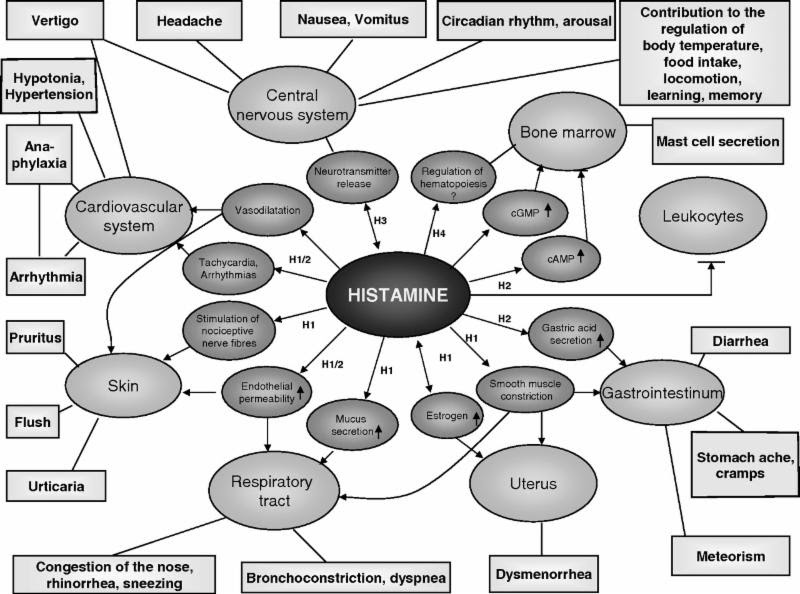March 2016 Issue
Vitalia Health Care March Promotions:
Test Your Gut Health!
Do you suffer from Irritable Bowel Syndrome (IBS)? Most cases of IBS are due to an overgrowth of bacteria in the small intestine. A simple breath test can diagnose if you have an overgrowth of bacteria, causing your symptoms of gas, bloating and diarrhea. Our small intestinal bacterial overgrowth (SIBO) test is available this month at $260 (regular price $400). Call us today for more information!

Metabolic Injections: 50% off our regular price of $50!
Our metabolic injection contains amino acids, vitamins and nutrients which have a specific target to convert excess fat into energy and help control blood sugar.
Eternal Youth March Promotions:
Buy any three iS Clinical products and receive your Xeomin for $9/unit.
Gut Health and its Connection to Weight Loss
Can the bacteria in your digestive tract make it harder for you to lose weight? Especially belly fat?
This month we are focusing on Gut Health. This topic is one I 
find really fascinating. The role of bacteria in our gut and how it can influence weight gain. I can personally comment on this topic. I found it hard to believe, but my metabolism increased and I had a much flatter and leaner stomach just by balancing the flora of bacteria in my gut. I completed a microbiology stool test, found the imbalances in flora and treated them. Then I took the correct probiotics based on my test results and noticed significant improvements. I got a leaner, flatter stomach!
So of course I started researching how this happened and came across so much research linking the gut microbiome and weight loss. A hallmark study at Washington University in 2013 first documented how transferring gut bacteria from an obese individual to a germ free mouse resulted in an obese mouse. The mice that received bacteria from a lean person did not gain weight. Research shows the composition of bacteria in your gut can influence your metabolism, how you extract calories from food, and even how much fat cells you produce.
In our Metabolic Weight Loss Program available at Vitalia Health Care, we spend time reviewing your digestive history, and important factors related to how you were born (C section vs vaginal delivery) and if you were breastfed. Both of these can influence your gut microflora and, in turn, affect your metabolism.
A simple stool test can tell you what types of bacteria are residing in your digestive system. Correcting imbalances can have a positive impact on your metabolism and weight loss.
For more information on the microbiology stool test and our Metabolic Weight Loss program, call us today!
Yours in health,
Dr. Tasreen Alibhai, ND
Depression/Anxiety Gut Connection
Did you know that about 90% of serotonin levels are produced in the digestive tract (according  to the California Institute ofTechnology)? Why is this significant? In order to understand it is important to understand the functions of the neurotransmitter serotonin. Serotonin carries signals along nerves mainly in the brain and digestive tract. These signals correspond to a balanced mood, social behaviour, appetite, sleep, memory and libido.
to the California Institute ofTechnology)? Why is this significant? In order to understand it is important to understand the functions of the neurotransmitter serotonin. Serotonin carries signals along nerves mainly in the brain and digestive tract. These signals correspond to a balanced mood, social behaviour, appetite, sleep, memory and libido.
When serotonin levels are low, the brain can be effected resulting in depression, anxiety, addictions, insomnia, food cravings and impaired memory. Pharmaceutical agents called SSRIs (Selective Serotonin Re-uptake Inhibitors) have been prescribed for decades and include familiar drugs such as Prozac, Effexor and Cipralex. These drugs act to increase serotonin levels in the body therefore can alleviate symptoms of depression and anxiety. A natural alternative to SSRIs that works in a similar fashion called 5-HTP has been favoured by Naturopathic Physicians due to the low levels of side effects that are commonly seen with SSRIs such as weight gain and low libido.
An April 2105 study published in the Journal of Experimental Biology concluded that gut bacteria help to increase serotonin production. This highlights the importance of maintenance of the good types of bacteria and other microbes inhabiting the digestive tract. In order to promote growth, supplementary probiotics and dietary sources of gut bacteria such as kefir, fermented foods and kombucha will support serotonin production.
To maximize serotonin levels and therefore balance mood appropriately, it is vital to have normal functioning digestion. Impairments to gut health include the presence of food sensitivities, yeast overgrowth, antibiotic use, low stomach acid and enzyme production, parasites, constipation and stress. Strengthening gut health and determining the root cause of digestive disturbances can be aided by visiting a naturopathic doctor. 5-HTP may be considered in individual cases while improvements to serotonin production are made via digestion care.
Histamine and Gut Cramping and Acne?
Have you ever noticed an increase ache in your joints after a night of indulgence?
How about painful bloating and cramping? Did you think maybe it was just too much salt intake causing you to retain fluids? Or perhaps you thought you ate something you are sensitive to, but can’t quite place it? The culprit could be histamine, and inability to clear it from the body.
Most of us associate histamine with common allergy symptoms such as itchy, watery, eyes, nasal congestion and sneezing, but histamine receptors are all over the body and can trigger a variety of symptoms. A quick glance at the figure below, taken from a 2007 article in the American Journal of Clinical Nutrition illustrates this. In the gut, for example, excess histamine can cause cramping, bloating, and diarrhea, whereas in the neurological system symptoms can include headache and dizziness and nausea.
Where does Histamine come from? Histamine is a bioactive amine that is produced by the body as an essential component of the digestive tract, nervous system and immune system. It is also naturally present in many food sources. The problem with histamine arises when there is too much for the body to clear.
This happens when the body is exposed to an allergen and mast cells release histamine to deal with the perceived offending agent. When very large levels are released, anaphylaxis results.
It can also happen, when foods high in histamine are ingested, and the body has a deficiency of Diamine Oxidase, the enzyme responsible for breaking down histamine. If the body cannot adequately clear the amine, then any number of the above symptoms can occur.
If you are struggling with chronic cramping and bloating, or skin issues like itching acne or eczema, or even unexplained joint pain, it may be time to do some testing.
The first test I would recommend is the food allergy test to see what your body is reacting to, or what is causing your body to release elevated amounts of histamine. Testing serum histamine or 24hr urine histamine levels may also be recommended as markers of progress.
If symptoms continue, after testing and appropriate food avoidance, then testing Diamine Oxidase levels may be recommended.
If this sounds like you, come in for a visit and find out how we can help you.
Yours In health,
Dr. Natalie Waller, BKin, ND
Targeting Angiotensin 2 as an Anti-Aging Plan
For many years doctors have been treating kidney disease, high blood pressure and heart disease with drugs that block something known as angiotensin II (anne-gee-o-ten-sin-two) or short form Ang II. Ang II can cause constriction of the blood vessels and salt retention so blocking it can help relax the vessels and put less stress on the vessels and thus the kidneys and heart. Over the last 50 years studies on the effects of angiotensin II inhibition have been extensive. Elevated levels of Ang II have been shown to cause direct vascular damage by increasing free radicals in the cells that line the blood vessels, cause kidney and heart damage and recently it has been shown to cause brain inflammation resulting in the feeling of stress, anxiety, depression and even PTSD.
something known as angiotensin II (anne-gee-o-ten-sin-two) or short form Ang II. Ang II can cause constriction of the blood vessels and salt retention so blocking it can help relax the vessels and put less stress on the vessels and thus the kidneys and heart. Over the last 50 years studies on the effects of angiotensin II inhibition have been extensive. Elevated levels of Ang II have been shown to cause direct vascular damage by increasing free radicals in the cells that line the blood vessels, cause kidney and heart damage and recently it has been shown to cause brain inflammation resulting in the feeling of stress, anxiety, depression and even PTSD.
Although having Ang II is normal in our bodies, elevated levels for long periods of time can cause a lot of damage and decrease quality of life. It is typically elevated with kidney damage, hardening of the arteries, heart disease and chronic stress. This high level of Ang II, if not controlled, will cause more damage to the kidneys, vessels, heart and brain!
To continue reading..click HERE
Yours In health,
Dr. Quinn Rivet, ND
Sincerely,
The Team at Vitalia Health Care



